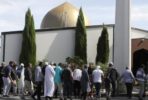
Associate Professor Reuben Yik-Pern Wong
THE recent controversy over a National University of Singapore professor’s Facebook posts on homosexuality has thrust the issue of academic freedom to the fore (“Protests over NUS don’s Facebook post”; last Saturday).
Academic freedom extends from the core peer-reviewed activities of research and teaching to include extramural domains of speech – where faculty members speak or write on larger political, social or religious matters outside their institutions.
While academics, who enjoy a privileged position in society, should be held to a high standard of accountability for what they say in or outside academia, society should not curtail them from expressing their ideas. Otherwise, social innovation, knowledge creation and creativity would be seriously hampered.
Clearly, these two imperatives need to be reconciled.
The term “academic freedom” emerged in German universities in the 19th century. The three basic principles were the freedom to teach, the freedom to learn, and the freedom to do research. These principles were adapted to different circumstances in higher education all over the world.
The 1940 Statement of Principles on Academic Freedom and Tenure by the American Association of University Professors (AAUP) is regularly cited in legal cases involving academic freedom.
An AAUP interpretive comment from the 1970 update of the 1940 statement noted that “controversy is at the heart of the free academic inquiry which the entire statement is designed to foster”.
Academics should be allowed, indeed encouraged, to express alternative or non-conformist opinions, however counter-intuitive these opinions may seem.
Of course, they should do so with tact and respect, and within society’s moral and legal limits. Academics must also protect the intellectual space they so cherish, by allowing others to voice opposing opinions.
How we respond to the latest incident is indicative of how we wish to move as a society. Do we value engaging people and dissonant ideas on a calm and intellectual basis, and respond to dissenting ideas respectfully and via reasoned argumentation?
In a civilised society, ideas should be discussed, debated, developed or demolished at the liberal marketplace of ideas, without fear of being accused of bigotry or thought crimes. Otherwise, we risk slipping into a culture of intolerance and self-censorship, a perpetual pressure to conform to the “politically correct” or “progressive” ideas of the day.
I hope that responses to contentious views can follow the dictum famously ascribed to the thinker Voltaire: “I may disagree with what you say, but I will defend to the death your right to say it.”
Written by Walid Jumblatt Abdullah & Reuben Wong (Associate Professor)
Source: The Straits Times







